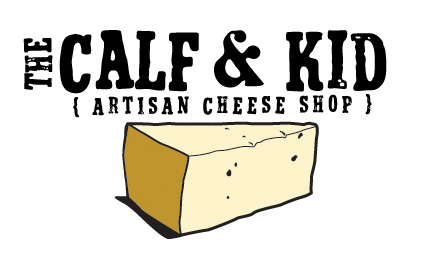As you may have already read, or heard, the New York Times posted a very poignant piece about the art of caring for cheese before it is ready for retail sale, or, "affinage".
You can read it for yourself here.
The piece focused on the few retailers in the U.S. who have the monetary and spacial bandwidth to truly give cheese proper storage where it may ripen to that perfect point at which it should be sold. If you can do that, and do it properly, great. I commend you. However, most cheese shops in this country are not that position, and I'm taking a moment to talk about the vast difference between those of us in the cheesemongering industry.
This subject of this piece is prime for the spotlight, as is anything that makes an already specialty food even more 'special'. What pinched my tits about this was the fact that this minor slice of journalism may give consumers the illusion that in order to be a reputable retailer you should have a 'cave', housing an unbeknowst cache of cheese that you are caring for behind the lines of your retail space. The retailers interviewed for this piece are among the very few, the rarest, of cheesemongers in the U.S. The truth is that most cheese bought in this country is from grocery stores, specialty food shops, co-ops, and independent cheese purveyors.
Consider the idea of 'affinage' in a strictly retail space, such as my own. I take in cheese as it is given to me by my distributor, importer, or directly from the cheese maker. I can assess it at it's time of arrival, and go from there. I am very limited in what I can do to a cheese once it's arrived in my shop, but I do what I can.
For example, I receive bloomy rind cheeses at various stages of ripeness. Some are ready to go, so we push them to make sure they are sold when they're at that awesome place of almost falling out of their rind. Others are still chalky in the middle, not yet ripe, so I will let them sit in my industrial fridge until they are at a point of ripeness where I feel confident selling them to my customers. Mind you, letting cheese sit in my backstock is not 'ageing', it is not an ideal environment for cheese to age, however that is what I have available. Likewise, I sometimes I get aged wheels that may arrive sweaty and a tad moldy. I brush them, let them breathe for a day before giving them a vinegar/salt rub, then let them dry for a day before cutting into them. I also keep dozens of other cheeses in my case that may require daily TLC, but I have never considered myself an 'affineur', I am just doing my job as a cheesemonger.
I wholeheartedly respect (the job of) the affineur. I spent many hours brushing and turning wheel after wheel of cheese during a summer internship, and my short stint in and out of the cave was enough to make me fully realize the immense amount of work that goes into making even one wheel of cheese.
To me 'affinage' is what the cheese makers, and/or their care-givers do to make sure their cheeses are prime and ready for retail. Retailers, or cheesmongers, do their best to make sure the product(s) they receive are in the best shape possible. And that is that.
Saturday, October 22, 2011
Monday, October 3, 2011
American Cheese Month!
Yep, you read it right, October is the first annual American Cheese Month. Thanks to the powers that be of The American Cheese Society and Beecher's Cheese, American cheese is the highlight of Fall!
We are participating in a program spearheaded by Beecher's own Kurt Dammeier. For the month of October, you can purchase a Passport for $10 (proceeds go to the American Cheese Education Fund), and every day indulge in one selected American cheese for 40% off the retail price. How cool is that? Even better, get a passport at our shop or at Beechers, and partake of daily featured cheeses in both places each day.
You can find out our daily selection via our Facebook page or Twitter.
31 days, 31 cheeses.
Work it!
We are participating in a program spearheaded by Beecher's own Kurt Dammeier. For the month of October, you can purchase a Passport for $10 (proceeds go to the American Cheese Education Fund), and every day indulge in one selected American cheese for 40% off the retail price. How cool is that? Even better, get a passport at our shop or at Beechers, and partake of daily featured cheeses in both places each day.
You can find out our daily selection via our Facebook page or Twitter.
31 days, 31 cheeses.
Work it!
Subscribe to:
Posts (Atom)




